|
“This [the Feast of Pentecost] was to show that just as God in creating man had, as Holy Scripture expresses it, breathed into him the breath of life, so too in communicating a new life to his disciples to live only by grace, he breathed into them his divine Spirit to give them some share in his own divine life. The Spirit of God also ought to come and to rest upon you on this sacred day, to make it possible for you to live and to act only by the Spirit’s action in you. Draw him within you by offering him a well-disposed heart.” — St. John Baptist De LaSalle, Meditation 43.1 Every year at Pentecost, the Church celebrates its birthday, and this year — assuming Christ died in 33 A.D. — the Church will be celebrating its 1,991st birthday. That is 1,991 years of preaching, teaching, and pastoral care for the many and diverse people of God. Each day, I work with ninth and tenth graders in a Catholic high school, teaching them about Sacred Scripture and the Catholic Church. While teaching my sophomores about Church History, I continually receive similar questions: “How did the Church care for its people?” “Why did the Church do that when it seems so wrong by today’s standards?” These questions got me thinking about the Church’s choices in caring for the people of God across history and led me to teach Church history by contextualizing Pastoral Decisions within the historical context of the time period. This led my students to a deeper understanding of the ancient, medieval, and modern ages of the Church. I began this blog post with a quote from St. John Baptist de LaSalle on the gifts of the Holy Spirit given to the Apostles at Pentecost because the same Spirit and gifts have guided the Church since that day. In the early Church, the Holy Spirit guided the Apostles to go out from Jerusalem and preach to the people where they were already living their daily lives. Acts of the Apostles discusses Peter and other Apostles preaching in the Temple in Jerusalem, entering the homes of Gentiles, and traveling to cities across the Roman Empire to speak in public spaces. These first missions sought to bring Jesus’s Gospel message to people in their own cultural context, made possible by the Holy Spirit’s gift of being able to speak various languages from Pentecost. The early Church focused its sacramental life on the “breaking of the bread” or Mass, most likely occurring in people’s homes and dining areas in their preferred language, as seen in the Road to Emmaus story. These personal invitations to the Faith yielded great results and the founding of Christian communities across the Roman Empire. These localized communities, however, soon began to consolidate with new pastoral goals and programs in the aftermath of Constantine’s Edict of Milan which legalized Christian worship, and the subsequent shift of Roman religion from paganism to Catholicism. With Catholicism becoming the state religion of the Roman Empire, the Church gradually became a more established institution. Part of this was the adoption of the use of Latin in public liturgy. Since Catholics could now worship in newly founded Basilicas and Churches, a common liturgical language was needed to cater to all members of Roman society. Additionally, when the Western Roman Empire fell in 476 A.D., effectively breaking up the empire into states ruled by different ethnic groups across Europe, the Church stepped in as a stabilizing institution to help govern and rule a fractured continent. The necessities of common liturgical practices and a united Faith leadership led the Church to influence secular medieval and Renaissance rulers. Many in society today — including my students — look at this era of the Church as the height of Catholic control and corruption, and there were several corrupt leaders within the Church. Nevertheless, when shown as a unifying agent of society — with positive and influential leaders like St. Francis of Assisi, St. Dominic Guzman, and St. Thomas Aquinas — the Church’s evangelization and catechesis efforts come to the forefront. Even today, the Church references the documents and principles of medieval and Renaissance theologians to explain how the Church continues to live its authentic witness to the Gospel in the modern age. The Church of the modern age has naturally progressed from its ancient, medieval, and Renaissance roots. The Holy Spirit continues to guide Pope Francis, the Bishops, and lay leadership across the Church to pastorally respond to the modern needs of the Body of Christ. One of the most notable moments of a pastoral shift in the modern era was the Second Vatican Council, allowing greater expression of cultural diversity in the Church, Liturgy, and personal spirituality. Each Pope since Vatican II has continued to further explain and open the documents of the council for consideration and application among the faithful. In 2019, in his Post-Synodal Apostolic Exhortation to Young People in the Church, Pope Francis challenges the reader to “above all, in one way or another, fight for the common good, serve the poor, be protagonists of the revolution of charity and service, capable of resisting the pathologies of consumerism and superficial individualism” (Christus Vivit, No. 174). While addressed to young people to be agents of change in society, this is one of many challenges of Pope Francis that beg the faithful to continue witnessing to the Truth of the Gospel and Jesus’s Mission in their own life. Similar messages have been given throughout the long history of the Church, with the only difference being in language and historical context. The singular unifying agent of the Church’s Pastoral Care throughout history has been the Holy Spirit. Today, we must continue to ask the Holy Spirit for help and inspiration in our daily life to help us go forward with the love of Christ to be positive witnesses of the Church today. **This image is from: https://www.psephizo.com/biblical-studies/the-movements-of-pentecost/**
0 Comments
"Since you are ambassadors and ministers of Jesus Christ in the work that you do, you must act as representing Jesus Christ himself. He wants your disciples to see him in you and receive your instructions as if he were giving them to them. They must be convinced that your instructions are the truth of Jesus Christ who speaks with your mouth, that it is only in his name that you teach, and that it is he who has given you authority over them.”—St. John Baptist de la Salle The entirety of the baptized are, as St. Paul says, “ambassadors for Christ,” but St. John Baptist de la Salle—the patron saint of teachers—expands on this idea for educators of the youth. La Salle sees teachers as becoming the image of Christ for students in the classroom. This idea necessitates that teachers teach their disciplines well, but they must also be models of love and virtue for their students. As a Secondary Education and History student observing at a Washington D.C. Catholic middle school, I have recently reflected on my role as a classroom teacher. Teachers, in many ways, become an extension of the domestic church. As children reach kindergarten age, they begin to spend the vast majority of their weeks—close to seven hours a day Monday to Friday—in the care of their teachers. The sheer amount of time students spend with their teachers necessitates that teachers become another guardian for their students. I have seen this first-hand in an eighth-grade class I have been observing. Students look to their teacher for guidance and reassurance, and their teacher provides structure, help, and correction for each student as needed. Particularly, in middle and high school, teachers begin to form students’ adolescent and adult mannerisms, and a teacher’s embodiment of Christ’s charity is essential for students to see how the Christian life is lived. Students crave a person to model, and while Jesus is the perfect example, it is hard for many to conceptualize how Jesus lived as a human being. La Salle explains, “Example makes a much greater impression on the mind and the heart than words, especially for children, for they do not yet have a mind sufficiently able to reflect, and they ordinarily model themselves on the example of their teachers” (la Salle, Meditations for Time of Retreat). A teacher must then step in as a witness to Christ’s mission lived out in the modern world. Teachers cannot be aloof people who look perfect to students. Instead, instructors must show that they are human with the capacity to make mistakes in classroom instruction and in working with their students. Over this semester of observations, I have noticed that students will eventually place their trust in you as they get to know you. As I assisted students with their classwork, asked them questions about their class and school, and talked about life, they slowly began asking me questions and fostering conversations with me. This culminated when I taught a complete lesson on the Roaring 20s and the Harlem Renaissance. My students engaged with me throughout the class period, and they even offered me feedback like a need to slow down a little and explain my slide images more. Students were also appreciative that I did not have all the answers to their questions, but I followed them up by saying, “let me check on that and get back to you.” Teachers must show students that they are an authority on their content and should be a trusted source of knowledge, but they also have limitations and do not know every single fact on a subject. Teachers—like pastoral ministers—must recognize the gravity of their role and hold themselves to a high moral and professional standard, but they must also be down-to-earth and relatable. This relatability in the classroom for middle and high school students allows for a form of collaboration where teachers and students work together to pursue the truth and the Christian life. St. John Baptist de la Salle was constantly trying to teach his order of teaching brothers that they were ministers of the Church and Christ and that the salvation of students lay within their hands as teachers. La Salle asked teachers to give of themselves to inspire their students in their academics and faith lives because he realized that students craved authentic witnesses to the theological and human truths of life. St. la Salle explained himself best when he wrote, “for the love of God ought to impel you, because Jesus Christ died for all, so that those who live might live no longer for themselves but for him who died for them. This is what your zeal must inspire in your disciples, as if God were appealing through you, because you are ambassadors for Jesus Christ” (la Salle, Meditations for Time of Retreat). In many ways, St. la Salle preempted modern evangelization practices with his emphasis on authentic witness as a means to bring people closer to God. To learn more about the saints, visit our Catholic Feast Days Website by clicking here.
Tomorrow, we celebrate the birthday of St. Vincent Pallotti, patron of the Catholic Apostolate Center and founder of the Union of Catholic Apostolate. St. Vincent Pallotti was born on April 21, 1795. How appropriate for the saint who lived and worked in the city of Rome to share his birthday with the traditional date for the founding of the city. To help celebrate his birthday, I have put together a list of some of his more interesting achievements and activities during his life. I hope that you too will be inspired by his life. 1) The Baptism of St. Vincent Pallotti St. Vincent Pallotti was baptized on April 22, 1795 in the St. Lawrence Church in Rome. This began his life in the church. 2) St. Vincent Pallotti on Holiday On his arrival in Frascati around 1805, St. Vincent Pallotti exchanged his new shoes for that of a poor boy. Giving away his new clothing to the poor would become a lifelong habit for the saint. 3) St. Vincent Pallotti Makes a Prediction While speaking with the young Giovanni Mastai-Ferretti in 1817, St. Vincent Pallotti predicted that he would one day be elected to the papacy. Mastai-Ferretti was elected Bishop of Rome on June 16, 1846. 4) St. Vincent Pallotti the Professor St. Vincent Pallotti was awarded two doctoral degrees in both theology and philosophy in 1814 and 1819. Teaching was one of the favorite activities of the saint. 5) St. Vincent Pallotti Showing Courage During the cholera epidemic of 1837, St. Vincent Pallotti organized a barefoot procession of religious. This action was penitential and showed that they were not afraid of the disease. 6) Catholic Apostolate Received Church Approval St. Vincent Pallotti received approval for the Catholic Apostolate from the Church in 1835. Pallotti also received support for the Catholic Apostolate from Pope Gregory XVI when others objected to it. 7) St. Vincent Pallotti the Chaplain Beginning in 1838, St. Vincent Pallotti served as a prison chaplain in Rome. He often worked with the condemned, saving many souls. He had a true willingness to serve all, especially the poor and the marginalized. 8) St. Vincent Pallotti the Peacekeeper St. Vincent Pallotti stopped a riot in the Trastevere neighborhood of Rome. He implored the people to stop rioting by showing them an image of Mary, Mother of Divine Love. 9) St. Vincent Pallotti Preaches one Last Time On the last day of the octave of the Epiphany in 1850, St. Vincent Pallotti gave his final sermon. 10) St. Vincent Pallotti Dies In 1850, St. Vincent Pallotti gave his final blessing to his followers. He showed great courage even in the face of death. There are many more stories about St. Vincent Pallotti that you may find interesting. Check out our St. Vincent Pallotti Portal to learn more about our patron and his many works. As a PhD student, there are often many moments where I find myself buried under work, exhausted from studying, and wondering if subjecting myself to a five year program of studying, teaching, and writing is worth it. Although I love what I study and find it extremely life-giving, there are plenty of moments when I’ve felt hopeless, isolated, and anxious about a future career in academia. This past year, I found myself struggling in the midst of my third semester in my program. I felt emotionally and mentally exhausted by the demands of being a second-year student and teaching assistant. Frustrated, worried, and tired, I made an appointment with one of my professors, hoping that venting to someone who understands the challenges of academia might at least help somewhat. As I vented about my anxieties of being an effective teaching assistant, distinguished student, and successful future academic, my professor patiently listened. Even as my concrete worries about grading and lecturing for the first time began to turn into catastrophizing about never being hired at a college or university, my professor sat with me until I finished talking. She never minimized my feelings or invalidated my emotions. Instead, she shared with me her own challenges that she faced as a graduate student. Through stories about her own experiences, she admitted that she had been where I was, too. My professor didn’t let the conversation remain at a place of despair; she instead encouraged me to look at the bigger picture in all of these difficulties: God’s plan for each of us. She challenged me to think about my own vocation to be a graduate student and reminded me that it was God’s will that I was here. My professor helped me to see that despite my anxiety and worry, I was not alone. Not only did I have her support and the support of others at my university, but my present and future rested in the hands of my Creator. She also helped me notice places in my life where I was successful, and suggested places where I could become stronger. After talking about my strengths and areas of improvement, she offered advice, pointed me to other people that might also help, and offered to continue the conversation whenever I needed it. I left encouraged, feeling supported, and with a new perspective on my life as a graduate student. When I first scheduled my meeting with my professor, I had only expected to give voice to my worries to someone who knew what I was talking about; however, when I left my meeting, I felt that I was no longer walking alone on my path. My professor was walking with me, accompanying me on my journey as a graduate student. Upon later reflection, this moment of accompaniment shared with my professor reminded me of Jesus’ own style of accompaniment on the Road to Emmaus (Luke 24:13-35). Like the disciples who were dejected, disillusioned, and confused about the events that had taken place in Jerusalem surrounding Jesus’ death, I too was anxious about my own life as a graduate student. My professor offered a presence of patient listening, even when my worries began spiraling into despair. Instead of invalidating my response to the challenges of my life, my professor, like Jesus, “drew near” (Luke 24:15) to me by sharing with me her own difficulties as a graduate student. My professor also helped me to shift my perspective. She imitated Jesus on the Road to Emmaus by reminding me of God’s role and plan in my life, encouraging me to look beyond the challenges of the present moment. Finally, my professor helped me to remember my own sense of mission and vocation, and move actively towards them. As Jesus interpreted the scriptures with the travelers on the way (Luke: 24:27), my professor assisted me in reading God’s revelation in my own life through my strengths and weaknesses, encouraging me to develop and strengthen my gifts in order to respond to God’s call. As Jesus walked with the disciples towards a definitive direction, my professor was walking with me towards a certain goal: greater trust in God and more freedom from anxiety in order to live out my vocation. After this moment of accompaniment with my professor, I continued on my path as a graduate student with a new sense of support and encouragement. Like the disciples after their own powerful encounter of accompaniment with Christ, I too returned to my own mission as a graduate student, but with renewed hope and enthusiasm. My experience of being accompanied by my professor made a significant impact on the way I think about my own life and vocation. In that simple meeting, my professor reminded me that no one lives out their vocation and personal mission in isolation. Instead, we need one another on this pilgrimage towards full realization of being the beloved of Christ. Accompaniment allows us to walk together towards Christ; it turns the challenges of the journey into opportunities to discover God’s love with and through one another. Who might accompany you on your journey towards Christ? How can you accompany others through challenges that you’ve faced? For more resources on mentorship and accompaniment, please click here.
The authentic Christian life resounds with love. Beyond any fleeting attraction or fondness, this love is not meant to be hoarded, but to be given in charity and service to others. The love of a Christian reflects the love of God, without Whom we would not exist nor would we have the capacity to love beyond the other, lesser creatures of this planet. This love cannot be restricted to a single day on the calendar but is meant to flow freely every day at every hour through every difficulty and joy, every sorrow and labor, and every moment of pain and peace. It is love which motivates us not only to live for others, but always for the glory of God.
Normally, the marital love between a man and a woman manifests and literally takes on new life in the conception of a child. That child adds another wonderful dimension to the love of married life that encompasses parenthood. Years of teaching, correcting, protecting, caring for, playing with, cherishing, and feeding children are physical and emotional applications of love purposed with raising them as members of the domestic church. Eventually, the outpouring of parental love for children can be reciprocated by them in selfless acts of charity, gratitude, joy, or other expressions of affection. Think of the times your parents would beam at seeing your room tidy without asking, warmly embrace you, offer a surprise gift, or watch you shine at school or on the field. Similarly, the example of love shown between parents is not lost on children. This example imprints the strength of the sacrament of marriage—especially during times of difficulty or stress—and encourages children to better appreciate and actively participate in the love of family life. For example, chores or other labors may be done more freely as intrinsically valuable to the functioning of the domestic church; without love, children might only begrudgingly pick up after themselves when forced. How does love otherwise radiate through family life? The eyes which looked upon the spouse on the wedding day can continue to hold the same gaze of awe-filled love through later moments of despair or pain. The hands which exchanged wedding rings can embrace one another with tenderness, consolation, joy, or mercy. They can also be used in service to the poor, the lonely, or the dying. The lips which uttered sacred vows can impart wisdom, praise, blessings, or part in radiant smiles. Just as God lovingly created the human body down to the smallest detail as “good”, so too can the body we have been gifted be utilized to facilitate God’s love among loved ones and neighbors. Perhaps the first lesson your parents taught you was that God is love. By virtue of our baptism, we have become adopted sons and daughters of our Heavenly Father. As such, every answer to our prayers is entirely out of love, regardless of the result. Similarly, our parents, having been entrusted with caring for us, draw upon the love in their marriage to instruct, guide, nourish, or chastise. While our parents’ love may be imperfect, we can look upon the perfect example of the love of the Trinity to shape our applications of love to transcend human limitations. As St. Paul famously wrote, “love bears all things, believes all things, hopes all things, endures all things.” If it did not, how could any of us be forgiven for our sins against each other or God? How would salvation history exist without love? Authentic marriage or family life is not sustainable without love. And yet, our human limitations may restrict our application of love in certain circumstances. That is why love must be renewed. It must deepen over time to reflect the experiences of life and extend to others. Couples may go on date nights, retreats, vacations, or other activities which can foster relaxation and various communications of love. Similarly, we are reminded of God’s love at each Mass, in which recalling the ultimate Love on the cross helps us receive spiritual renewal to offer that same love to all we encounter. The spiritual renewal we attain allows us to recall the presence of God in our daily lives at every moment and to live up to the potential He calls us to. If our vocation is religious life, then we can hold steadfast to the rules of the order to which we belong and rejoice in our sacred calling. If we are single, we can allow ourselves to increase our capacity to love or extend it to others. If we are married, we can reaffirm the gifts of love in the family— raising children in the Faith or cherishing our spouse. In doing so, we realize that love does not come from ourselves. Rather, God, the source of all love, dwells in our hearts and provides the strength and courage to open ourselves in vulnerability to another. Our love may be spurned, mocked, or tested, but just as God will not refuse His infinite mercy to the hardest of sinners’ hearts, so too are we called to rise above human judgements or inclinations and extend to others the great gift of love God Himself never tires of bestowing. Question for Reflection: Who are some examples of authentic Christian love in your own life? For more resources on Marriage and Family, please click here. In this world of artificial connection, can we still discover and grasp an authentic connection within ourselves to our Triune God? Many of us are technologically connected throughout the day and into the evening, whether it be through social media, texting, e-mails, the Internet, or general screen time. In a normal day-to-day setting, take a moment to reflect on how often you have face-to-face time to truly speak with and connect with your family, peers, friends, or co-workers. In those moments, are you able to reach beyond a superficial level of connection? Oftentimes amidst the busyness of our lives, schedules, commutes, and responsibilities, we find it difficult to truly maintain a connected relationship with others that goes beyond our phone, tablet, or computer screen. If maintaining this human connection has become difficult, how much more difficult is it for us to find those moments of quiet, internal spiritual connection to God? Our society and technology have fooled us into believing that all of this quick and easy access has made it easier than ever to keep in touch with those that mean the most to us. And yet oftentimes it has instead succeeded in building walls of electronic screens not only between us and others but, more importantly, between us and God. There are many things that resonate between our physical, or exterior, and our spiritual, or interior, lives. What is the equivalent “screen time” in our spiritual lives? Where are we holding onto surface-level connections instead of digging deeper into our relationship with God and growing in our spiritual life? Are we holding onto a barrier that is holding us back from maturing in our spiritual development? Just as we grow, develop, and mature in our physical lives, we are called to do so in our spiritual lives as well. Today, we celebrate and commemorate the life of Saint Teresa of Jesus, also known as Saint Teresa of Avila. Saint Teresa was a spiritual writer and mystic. She is one of four females to be named a Doctor of the Church, meaning that her spiritual writings have been given special authority. Her teachings, writings, and life can point us in the direction of growing in our interior life and thus growing in our faith and connection to God. In Saint Teresa’s spiritual writing The Interior Castle, she likens the stages of growth and development of our interior life to seven mansions within a castle. Saint Teresa describes the dwelling of God within us as residing in the seventh mansion of our castle. Through the growth and development of our spiritual life, our soul is to journey through the mansions to find its rest within the seventh, the kingdom of God. The first step in entering the castle is prayer. Saint Teresa teaches that, “Souls without prayer are like people whose bodies and limbs are paralyzed.” Let’s take a moment to reflect on our prayer life. Are there any “electronic screens” standing in the way of deepening our relationship and our conversations with our Creator? Are we connecting to God in our prayer life as if we are updating our Facebook status or posting our latest photo to Instagram? Or are we really striving to power down the screens of distraction in our life to speak with God AND listen to Him? Let us turn to the life of Saint Teresa as an example and inspiration for our desire to develop the maturity of our soul. The next time you enter into prayer, “Go to your inner room, close the door, and pray to your Father in secret.” (Matthew 6:6) If we look at these words of Scripture through the lens of Saint Teresa’s teachings, we must pass the walls of our castle, our body, in order to enter our inner room. Allow yourself a few moments to quiet and calm the body in order to turn your focus to God. Take time to power down the screen. Close your eyes and breathe deeply. The Divine Physician has created our body in such a way that by slowing and deepening our breath rate, our heart rate and blood pressure decreases, our muscles relax, and the racing thoughts of our mind slow so that we can focus on one Triune thing, our God. In this state of quiet and calm, invite the Holy Spirit into this moment and seek a true, contemplative connection in prayer with your Creator. I would like to close with a prayer often attributed to Saint Teresa of Avila: “May today there be peace within. May you trust God that you are exactly where you are meant to be. May you not forget the infinite possibilities that are born of faith. May you use those gifts that you have received, and pass on the love that has been given to you. May you be content knowing you are a child of God. Let this presence settle into your bones, and allow your soul the freedom to sing, dance, praise and love. It is there for each and every one of us.” Saint Teresa of Avila, pray for us! “The Gospel of the Family: Joy for the World” is the theme that Pope Francis chose for the upcoming World Meeting of Families in Dublin, Ireland. One aspect that will be explored is how “the Christian family, by its witness to the life and love of Jesus, is a principal agent of evangelization to the world.” Catholic teaching calls the family, the “domestic church” (Lumen Gentium, 11) and parents are told in the Rite of Baptism that they are “the first teachers of their child in the ways of the faith.”
Others in the Church, clergy, those in consecrated life, and lay people, are supposed to be co-responsible with parents not only for teaching children and young people, but most especially, nurturing them, protecting them, and witnessing to them holiness of life. When this fails to happen whether in the past or in the present, as is once again showing itself in various parts of the world, then repentance, reform and renewal are not only needed, they are necessary. Repentance, reform, renewal, and greater holiness are not possible without co-responsibility among all the faithful in deeper conversion of life in Christ as our patron, St. Vincent Pallotti, envisioned over 183 years ago in Rome. We cannot do this on our own as Pope Francis reminded all in his apostolic exhortation, Gaudete et Exsultate: “Ultimately, the lack of a heartfelt and prayerful acknowledgment of our limitations prevents grace from working more effectively within us, for no room is left for bringing about the potential good that is part of a sincere and genuine journey of growth” (GE, 50). Since we are limited, we are challenged to do, with God’s grace, as St. Vincent Pallotti exhorts us to do: "We must begin to reform our lives by putting all our confidence in God." May the Charity of Christ urge us on! In Christ, Apostle of the Eternal Father, Fr. Frank As we continue through the Lenten season, it is natural that the newness of Lent has worn off. Maybe, if you’re like me, you have caught yourself on more than one occasion frustrated for “failing” at your Lenten plan. The reality is that Lent is not just about what we can do in terms of prayer, fasting, and almsgiving, but who we are becoming. In short, Lent is meant to teach us to love—to love in the desert, to love the daily crosses of life, and ultimately to join with Love Himself through the joy of the Resurrection. Let’s spend some time reflecting on these three types of love. To love in the desert. Even after the 30 years He spent in Nazareth, before He started His public ministry, our Lord withdrew to the desert by Himself for 40 days to pray, fast, and prepare for his mission. And as He did, we must also do. If we can encounter the love of God in the solitude of our hearts and in the quiet of prayer with Him, we will be better equipped to be able to share His love with the world. Time spent with God in the desert enables us to go out on mission. Lent reminds us—even in the deserts—that God is faithful through it all. To love the crosses. A few weeks ago, a wise priest told me to not just carry my cross, but pray for the grace to also love the cross. I’ll be honest, I shrugged the advice off initially. I don’t think I’m alone: it’s natural for us to struggle with our crosses and wonder why the Lord allows them to happen. But the beauty of Lent is that our prayer, fasting and almsgiving can allow our hearts to grow in this grace, be transformed by our crosses, and even come to love them. Let us meditate on the Passion of Christ throughout the Lenten season, asking Christ to help us embrace our cross in order to join Him in the glory of His Resurrection. To join with Love Himself. The good news for us is that the Christian life was never meant to be lived alone. For this reason, Christ instituted the Church in the Upper Room after his Resurrection. When we unite ourselves and our sufferings with the Body of Christ, we are not only participating in the mission of Lent, but the mission of our lives as Christians. We are called to build one another up throughout our lives of faith, including offering our prayers and sacrifices for the benefit of the Church. That being said, the point of these 40 days is not just to journey with each other, but towards Christ. He is our greatest mission partner, our chief example, and the cause for our joy. To join with Love Himself is the great adventure of Lent and to share in the joy of the resurrection is our great privilege as Christians. May He find us worthy this Lent of learning to love like Him. Questions for Reflection: How is your Lenten journey going thus far? Have you been able to keep your Lenten commitments of prayer, fasting, and almsgiving? Take a few moments to reflect on how you’re growing this Lent. For more resources to guide you along your Lenten journey, click here. This Lenten season, I’m trying to be intentional with my prayer. In the Gospel today, Jesus teaches the disciples to pray the Our Father. When I read this passage to my students, they were really excited to make the connection to Jesus’ teaching and to a prayer some of them had heard before. Their little faces lit up and hands shot into the air to share about their experience with the Our Father.
In a 2016 homily, Pope Francis explained that the concept of “Father” in the Our Father is the cornerstone of prayer, for it gives us our identity as sons and daughters of God and as a family. Prayer is a way to connect with God, talk to him, and deepen our relationship with him. In prayer, Pope Francis said that if we do not begin “with ‘Father’ and with the awareness that we are children and that we have a Father who loves us and knows all of our needs,” we can sometimes find ourselves in our most vulnerable place: alone. It can be hard to be open and listen for God’s voice in the midst of worrying about ourselves and our concerns. This Lent, I invite you to use prayer to help deepen your understanding of your identity as the son or daughter of God and to put aside distractions and focus on Christ. In prayer, we can discover a deeper sense of self and of others. We can also take a moment to consider our failures and better understand God’s forgiveness. In the Our Father, we ask God to forgive us and pray that we can find strength to forgive others. That strength can be found in the Sacrament of Reconciliation and in making amends to those whom we have wronged. This deepens our relationship with God and with others. Pope Francis continued, “If you go to pray and say only ‘Father’, thinking of the One who gave you life, who gives you your identity and loves you, and you say ‘our’, forgiving everyone, forgetting offences: this is the best prayer that you can make”. Throughout Lent, I want to deepen my prayer life and model for my students and my husband that God is truly at the center of my life. During Lent, I’d like to challenge myself to sit in the chapel some mornings before school starts and pray in silence before God. I’d also like to plan my morning around a daily Mass. Throughout Lent, I will look to the Our Father as a centering and reflective prayer. Jesus taught us to pray with it, and I intend to use these simple but transformative words to guide my life. Just as my students continue to learn about prayer, I too will continue to allow myself a chance to start over and prepare my heart for God’s love this Lent. As we continue on our Lenten journey, I invite you to reflect on the following questions asked by Pope Francis in his homily: “Do I see God as Father, do I feel that He is my Father? And if I do not feel that He is, do I ask the Holy Spirit to teach me to know this? Am I capable of forgetting offences, of forgiving, of letting things go and asking the Father: ‘they are also your children, and they treated me badly, please help me to forgive?” For more Lenten and Easter resources, please click here. When my husband and I were preparing for marriage, we spent time in reflection and prayer carefully choosing our Mass readings. It was such an exciting decision to make, and we prayed that the readings would reflect and inspire us in our marriage and all whom we would witness to by our marriage. Some of these same readings will be read at Masses across the world on the upcoming feast of the Holy Family, serving as a reminder of how we can live as reflections of the Holy Family in our daily lives. In the second reading, Paul tells the Colossians, “Put on, as God's chosen ones, holy and beloved, heartfelt compassion, kindness, humility, gentleness, and patience” (Col 3:12). Just like Mary, Joseph, and Jesus, we are God’s beloved, chosen and loved by God, and with that, we are called to live by these same virtues that Paul shares with the Colossians. The stories of Mary and Joseph consistently show us their lives of humility and gentleness. I think of Mary’s fiat (Luke 1:38), Joseph’s obedience to the angel of the Lord (Matthew 1:24), or how Mary and Joseph took Jesus to be presented in the temple in this weekend’s Gospel (Luke 2:22-40). Just like Mary and Joseph, we are called to serve and love God with faithfulness that is radical, but gentle and sweet. What does this faithfulness look like? For the Holy Family, not only did it manifest in the stories we read about in Scripture, but also in the mundane moments of the every day. Mary nursed Jesus as an infant, Joseph taught him carpentry, and Jesus served his parents and brought them joy! Jesus carried this love in his ministry that nurtured all to whom he preached, and it continues to carry on in the legacy of the Church. These little acts of faithfulness yielded enormous fruits and carried the Holy Family through times of immense suffering. As I feel overwhelmed with my day to day duties of family life as a wife and mother, or my job as a teacher, I find comfort in knowing that perhaps Mary and Joseph felt these demands, too. They were faithful to their vocations, to each other, and to the Lord. Life is a balancing act, but with “Christ dwell[ing] in you richly,” like the Holy Family, all can be done in love, “do[ing] everything in the name of the Lord Jesus” (Col 3:17). You show faithfulness when you do the dishes, when you submit an assignment for work or school, when you make the bed. You show faithfulness when you play with your children, when you have coffee with a friend, when you stop and pray. You show faithfulness when you show up to Mass. Opportunities for faithfulness, humility, and gentleness are in the every day, both big and small. Through these opportunities for faithfulness I have learned that God is never outdone in generosity. He wants to bless us and let us know His love, and He does this in the most profound way when we show Him our faithfulness and love, just as the Holy Family has modeled for us. As we continue to navigate the demands of our daily lives, let us cling to the intercession of the Holy Family, that we may be gentle and humble, showing radical faithfulness in all that we do. Question for Reflection: What are some opportunities to show for faithfulness in your life? For more resources on Marriage and Family, click here. Alyce Shields is a teacher in Washington D.C.
St. Paul offers us this challenge: “Be filled with the Spirit . . . giving thanks to God the Father at all times and for everything in the name of our Lord Jesus Christ” (Eph. 5:20) (emphasis added). Be thankful “at all times” and for “everything?” “Well that would seem to include suffering and evil. Really Lord – you want me to be thankful for that trial in my life? I'll be thankful for other things but not for that. That's impossible! Lord, at the very least, maybe you could tell me a little bit more about how I can live this radical gratitude? Help my unbelief!” This is how my prayer dialogue went with God one day as I examined my attitude toward gratitude. I thought to myself, “Do I treat gratitude as just one of those nice pious sentiments that I should do in general, but ignore when it costs me? In other words, do I make gratitude just a platitude?” I know I have treated gratitude in that way and have brushed off the Christian teaching to be thankful 'at all times' as idealistic on more than one occasion. I began to examine my soul more in depth. Why do I do this? “Usually,” I concluded, “it is because of a lack of knowledge as to why something is good for me and because my thoughts are too limited on the topic.” But God wants to break open our limited thoughts and actions. So I pressed on in my search for a deeper meaning of gratitude. Here is what I discovered. I read a book recently that changed my perspective on gratitude. The author explained that gratitude is not just a good practice to do occasionally to uplift our spiritual lives, but is actually a necessary law of every Christian spiritual life. Gratitude is not an option; it is something we have to practice regardless of temperament, disposition, or circumstance. Based on my reading, I came up with two patterns for our spiritual life: the “cycle of spiritual fruitfulness” and the “cycle of spiritual emptiness”. The cycle of spiritual fruitfulness begins with trust in God, which is nourished through faithfulness to one’s prayer life. Through prayer, gratitude grows. Gratitude is being aware of God’s many gifts in the daily happenings of our lives. Gratitude then becomes a necessary part of trust, especially in the midst of our suffering because gratitude opens up our heart to God. As we see more of God in our lives, then we give more to God and in turn are better able to receive more of God's love and grace in our life. This cycle, which begins with trust and gratitude, then repeats as we grow in love and become more loving gradually. This can be boiled down to: Trust through Prayer → Gratitude → Opens Heart → More Love The cycle of spiritual emptiness begins with a lack of trust in God and a lack of faithfulness to one's prayer life. Negativity focused on our weaknesses, what we lack, and our suffering replaces gratitude, closing our hearts and making us less capable of receiving God's love. We may even sin, like Adam and Eve in the Garden of Eden, whose ingratitude ultimately led to the first sin (Genesis 3). If we let this endure too long, then our whole life can become one big storm of sadness and anger. This can be boiled down to: Distrust through Not Praying→ Negativity → Closed Heart → Less Love Radical Gratitude Reconsidered The cycle of spiritual fruitfulness offers us several good reasons for why St. Paul instructs us to be grateful at all times and for everything with no exception. If I want to open up my heart more to the Lord and thereby love more, then I must find a way to be thankful - even for the most difficult suffering. Thankfulness is not an option reserved only for those who describe themselves as sanguine or optimists; thankfulness is a necessary part of holiness. It is therefore no coincidence that the highest Sacrament in the Church, the Eucharist, in Greek literally means “thanksgiving, gratitude.” With this in mind, I went back to my dialogue with God. I asked God for the grace to be more grateful in my daily life for everything. God, in turn, has asked me when I am tempted to be ungrateful and negative to make an act of trust in the moment and find something to be grateful for – health, the fresh crisp autumn air perhaps, or even more profoundly – my daily Sacrament with my wonderful wife – and thereby to become more aware of His love in my life. Slowly then, I become a little more grateful and a little less negative. Eventually I hope to build a habit of radical gratitude for every occasion in my life. This gratefulness does not come overnight and does not necessitate a formal act of thankfulness at every moment. As I become more grateful in those little moments, I will not only be able to resist ingratitude in the more difficult moments, but will also be better able to be grateful even for new sufferings. In this way, I am trying slowly to become thankful at all times by committing to a few acts of trust each day through gratitude. Radical gratitude is possible, but only through God’s wonderful grace! Through grace, I have come to learn the importance of radical gratitude and the cycle of spiritual fruitfulness. I choose the cycle of spiritual fruitfulness. What cycle are you on? Come Holy Spirit, make all of us more radically grateful! When was the last time you thought about St. Joseph? For many, he is a shadowy figure. And yet, he is recognized as the "protector" of the Church. His feast day is March 19th. However, we celebrate it this year on the 20th because the 19th lands on a Sunday. What's your image of Joseph? Is he young or old? Is he alone or with someone? Is he working or sleeping? Is he rich or poor? Is he strong or weak? We invite you now to clear away all those images in order to see him for the first time. Let's meet Joseph anew, as he is presented to us in the Gospel of Matthew at the birth of Jesus. Of course, the best thing to do is to pray with Matthew 1: 18-25. Here’s the cliff note version: Mary and Joseph are engaged. She is expecting. He intends to divorce her quietly but learns, in a dream, that she is carrying a son who will "save his people from their sins" (Matthew 1:21). Joseph is told to accept Mary as his wife and name the child Jesus. In this passage, we see four qualities in Joseph - compassion, righteousness, fidelity, and decisiveness - that make him a saintly man and a role model for us today. Imagine how Joseph felt about Mary's pregnancy. The marriage customs of his day were much different than ours. Were they "in love" or was the engagement arranged? Perhaps Joseph felt more hurt than angry; or disappointed given Mary's natural innocence. In any case, he responded with compassion; he did not want to see her hurt. He did, however, want to do what is right. While he never says a word, Joseph's actions continually said "yes" to God's will. He takes Mary into his home as his wife. He honors Mary's special relationship with God by not having "relations with her until she bore a son" (Matthew 1:25). He claims Jesus as his son by naming him. Joseph lived a quiet fidelity - expressed in action rather than words. A kind-hearted man, accepting the mystery of salvation entrusted to him as his God-given purpose, his vocation, Joseph adopts Jesus and raises him as his own. He protects him, teaches him, and loves him. Joseph's love for Mary and Jesus sharpened his awareness of the forces around them. When Herod threatens the life of Jesus, Joseph leaps into action leaving that night for Egypt. When the threat is gone, he brings Jesus back to his people. When he realizes some threat remains, he settles in Nazareth thus fulfilling a prophecy. His decisive action was always for the good of Jesus and Mary. As we get close to Joseph, we meet a kind-hearted man, walking humbly with his God, as he accepts, protects, and raises Jesus so he can "save his people from their sins." He plays a quiet, but essential, role in salvation history. Perhaps we, too, have a quiet role to play in salvation history. Perhaps Jesus is relying on us just as he relied on Joseph. Compassion, righteousness, fidelity, and decisiveness can help us live out our role just as they served Joseph. St. Joseph, pray for us.
Deus Caritas est: God is Love. How many times have we heard this simple yet profound theological truth in a homily, story, or teaching? How many times have we taken this for granted? In a world where truth often seems subjective, God’s love remains a refreshing and comforting constant in the Christian life. If this were not so, for what purpose, let alone by what means, would you or I exist? It is this perfect love of God which sustains us each and every moment of eternity. In fact, it’s God’s very nature, so bursting with love, that wills us into being. So too must our love for our neighbors guide and give purpose to our lives. The liturgical season of Lent is an especially wonderful opportunity for us to reorient ourselves towards God’s love and mercy. As we prepare to celebrate the ultimate expression of love the world has ever known this liturgical season, we may give up something we fleetingly desire in order to be made more aware of our need to depend on the One Love, the True Love, the Infinite Love. Of course, we can do more throughout Lent, but take to heart the suggestion of my bishop: [T]his Lent, fast and abstain when the Church requires it; give something up to make room for God and his mercy to fill you. Pray more and pray deeply and whenever you can because God listens to you: prayer puts you in touch with God and his mercy. Do something good for someone else every day; resolve to care about someone else every day, because God does, Jesus does and wants you to be like him, loving and full of mercy. Don’t make this Lent a complicated regimen of resolutions and promises that will unravel a week from now. Make it simple. Make it real. [emphasis added] Lent is not a time of self-pity or bemoaning our spiritual shortcomings. To fail to acknowledge God’s willingness to have mercy and forgive the sinner of his or her faults places sin as the end without further hope of relief, restricts one’s view of God as having limits on his love, and risks committing a sin against the Holy Spirit (i.e. believing that the magnitude of a sin is greater than God’s power— and continuous willingness— to forgive [cf CCC 1864]). While Lent brings to mind the classic images of sackcloth and ashes, the Lord desires something much more personal than just the recognition of our sins—“sincere, heartfelt repentance, change of heart, conversion” is what each of us is called to offer the Lord with the same Love He offered to those He encountered in His earthly ministry and ultimately from the Cross. “I desire mercy, not sacrifice,” our Lord, echoing the words of the prophet Hosea, declares to the Pharisees during the calling of Matthew (cf. Hosea 6:6) For us today, these words still ring true. Lent is not an easy time, but it invites us to shake us out of our spiritual complacency if we are to answer the Lord’s call to conversion. This may be uncomfortable. Receiving the ashes on our foreheads tomorrow, however, signifies our commitment to God that we will endeavor each day—and not just until Easter Sunday—to change our lives to be (once again) oriented towards God in avoidance of the sin and distractions which lead us away from His love. While we seek forgiveness from God, we are also to freely forgive others, “And forgive us our debts, as we also have forgiven our debtors.” Even if we fall along the way, the important thing is to pick ourselves up and start again— the Lord is patient! In closing, let us reflect on a final word from the Venerable Fulton Sheen: God loves you despite your unworthiness. It is His love which will make you better, rather than your betterment which will make Him love you. … Say to yourself over and over again, regardless of what happens: “God loves me!” And then add: “And I will try to love Him!” (Fulton Sheen, Remade for Happiness: Achieving Life’s Purpose through Spiritual Transformation (San Francisco: Ignatius Press, 2014), 187, 25.) This week, the Church celebrates National Vocation Awareness Week. In a particular way, we pray for an increase in awareness and openness to vocations in the priesthood and religious life. While the seminary and priesthood might have seemed like a logical next step to many of my friends and family members, it was certainly not what I had planned for myself. Very often, we get in the way of what God has planned for us because we want to be in control. We want to decide the next step. Well, as Pope Francis is fond of saying, “our God is a God of surprises.” God is certainly full of surprises: I now find myself in my third year of formation for the priesthood. I attribute this perceived vocation to the priesthood to the slow and ever-present assistance of God in my life. The Holy Spirit has been at work by placing people in my life who have assisted me in my journey of faith and discernment. These women and men have served as friends, guides, and fellow discerners of God’s call, and have assisted me in developing and sustaining healthy relationships centered on Christ and grounded in faith. While discernment is a very personal process, the vocation to the priesthood is not a “me” vocation. Priesthood is a vocation of service to the people of God. As I progressed in my discernment, I realized more and more that I am simply responding to a call that I have discerned over time, a call that I received in the sacrament of baptism. All the baptized are called to holiness, and priests are needed to preach the gospel message to them, to teach them the great truths of our faith, and to make them saints. Preaching, teaching, and sanctifying are at the very heart of a priestly vocation. Saint John Paul II said that parishes should be “genuine ‘schools’ of prayer”, and that it is the parish priest who is to be the master teacher of prayer. To be a priest is to be a servant and to stand in the person of Christ to preach, teach, and celebrate the sacraments. As a diocesan priest, I hope to do that within the context of the local parish, where I have experienced firsthand the importance of forming a community of faith. During this National Vocation Awareness Week, it is important to say thank you. Thank you for your support of vocations, seminarians, and religious in formation. Without the support of my family and friends—as well as the prayers of parishioners and total strangers—I certainly would not be in the seminary today! It is also important to ask for your prayers. The Lord certainly hears our prayers. There are many young people in our parishes and schools who are actively discerning their vocations, whether it is to priesthood, religious life, marriage, or single life. The Lord needs more laborers in the vineyard, so please pray that our communities may produce more workers to carry out his mission. Encourage young people—your children, your grandchildren, your friends, your students, your fellow parishioners—to consider what it is that the Lord may be asking of them. Sometimes simply asking the question can get the gears in motion or spur someone into speaking with a priest or religious about the possibility of a vocation. Join in asking the Lord to call more young people to discern vocations to help build up the Church. I believe that the Lord is calling many young people to serve him and the Church as priests and religious. Pray that they might have the courage to respond to that call, and to respond joyfully. To learn more about vocational discernment click here.
Can you imagine yourself as one of the apostles? Put yourself in their shoes. You were moved by Jesus. His teachings spoke to your heart. When you were with him, you felt incredibly alive, free, loved and full of hope. No one persuaded you; you wanted to follow him. You were there when Jesus fed the 5,000, gave sight to the blind, and raised a young man from the dead. He received a royal welcome into Jerusalem. You celebrated Passover with him. You were also there when the soldiers came and dragged Jesus off to be crucified. Scared for your own life, you hid in the shadows abandoning him to death on the cross. You were a puddle of fear, sadness, anger, and despair. You disgust yourself. Disoriented, you stumble upon the others. You look to Peter but that rock is crushed, broken by grief and disbelief. The Sabbath comes and goes. It’s over—time to pick up the pieces of your life and move on. But just as you begin to leave, two female disciples arrive with astonishing news. Jesus is alive! Remember the mountain in Galilee? Remember what he said? Go there and you will see him. Of course, you go. You gather with the other disciples and make arrangements for the journey. It will take four days. Along the way, you cry, confess, and tell stories. You see the mountain in the distance. A lone person is descending from the top. Before you know it, Jesus is approaching you. You are gaping-mouth-open astonished. Some fall down to worship him. Others cannot believe it. Peter collapses to his knees. And still, Jesus approaches. He embraces you. You are alive again. Jesus reaches out to everyone. He turns to Peter last, lifting him up, restoring his strength. Jesus calls you together. "All power in heaven and on earth has been given to me. Go, therefore, and make disciples of all nations, baptizing them in the name of the Father, and of the Son, and of the Holy Spirit." He pauses here, letting his eyes meet each one of us. Some of us are giddy with joy, others cannot stop the tears. "Teaching them to observe all that I have commanded you." Suddenly, your heart begins to burn within you. You have a lot to say, a lot to share, a lot to tell. You remember with crystal clarity everything he taught, every moment he was with you, all the experiences you shared. You know now who you are and what you are about. It is time to go. But you hesitate. You want to stay. Jesus knows your heart. He is speaking again. Amazingly, he is talking to everyone and only you at the same time. "Behold, I am with you always, until the end of the age." Stay here. Stay with Jesus resting his eyes in yours. You have a lot to offer. You know who you are, what the Lord means to you, what he asks of you, and what he has given you. The stark truth of mission is hard to believe. God sends you into the world because there is something the world needs that only you can give. World Mission Sunday reminds us that we are sent to the whole world. As disciples of Jesus, there is no place or people beyond our sphere of concern. Pope Francis reminds us that mission is an "immense work of mercy, both spiritual and material." Last year, many of us “walked with Francis.” This year, let us be with Pope Francis in the mission of mercy. Let us renew our call to mission - to care about everyone, everywhere. I offer three suggestions on how to renew the call to mission:
Jesus is sending us out to all nations and he will be with us always. We will be astonished at how the Lord will reveal himself to us through mission. It is time to go. |
Details
Archives
July 2024
Categories
All
|
About |
Media |
© COPYRIGHT 2024 | ALL RIGHTS RESERVED

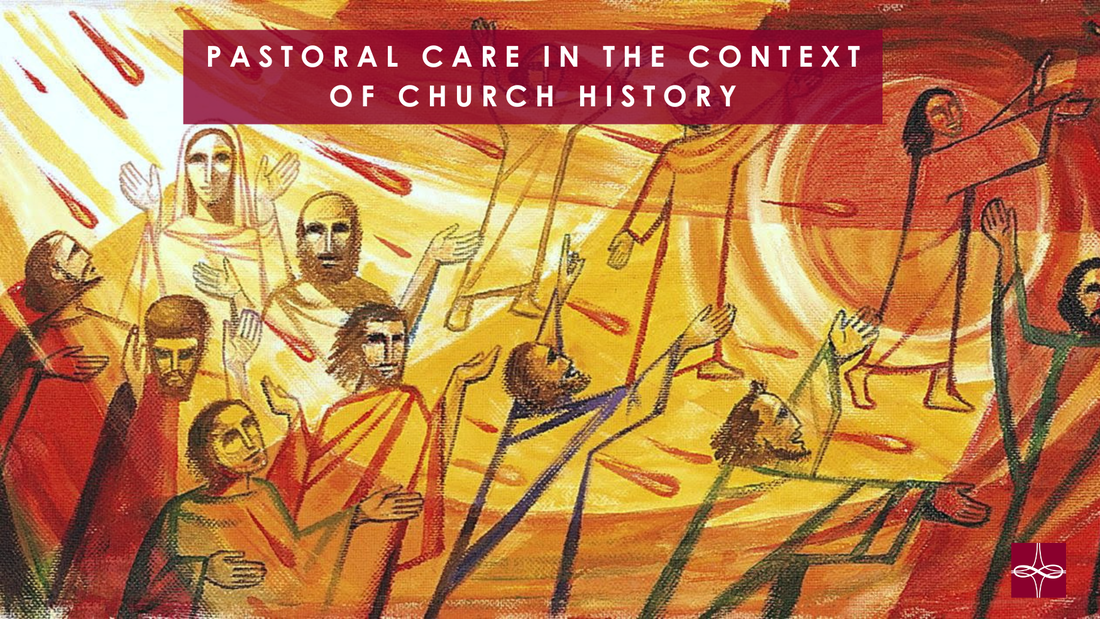



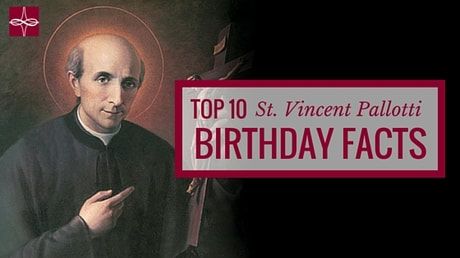
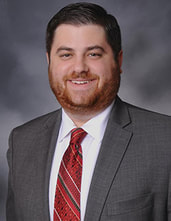
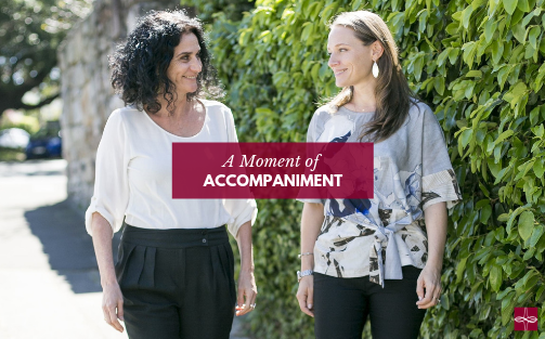

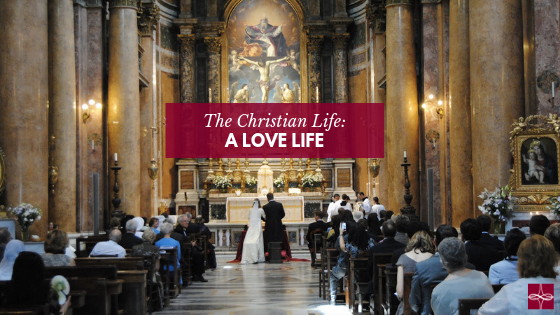



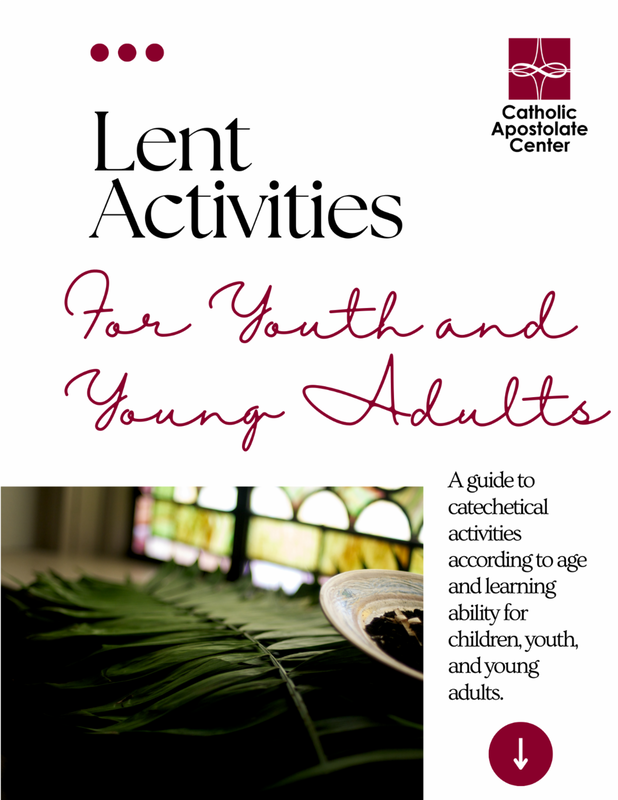
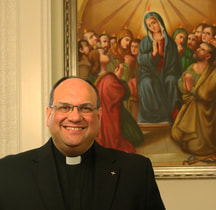
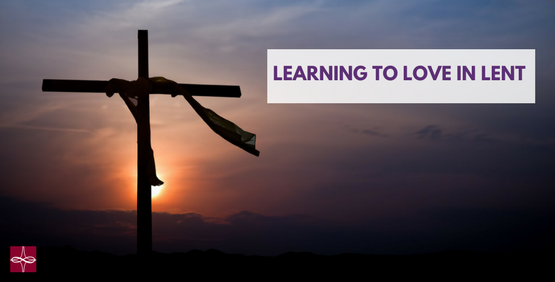



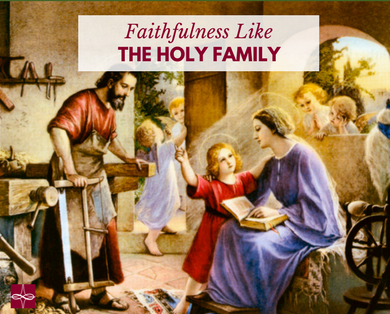




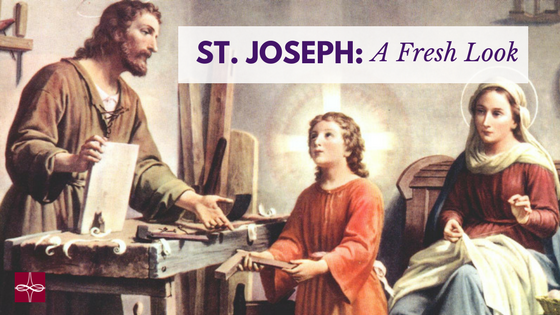
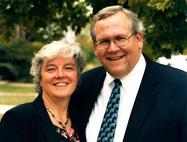
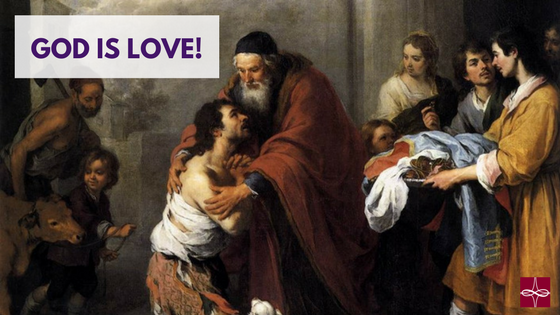





 RSS Feed
RSS Feed